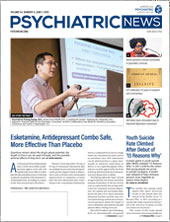Risk factors for binge eating may vary by socioeconomic status (SES), highlighting a need to tailor screenings and interventions for binge eating among adolescents more precisely, according to a study in the International Journal of Eating Disorders.
Caroline West, a clinical psychology doctoral student at Kent State University in Ohio, and colleagues at the University of Minnesota and Brown University reviewed data on 2,179 participants in Project Eating and Activity in Teens and Young Adults (Project EAT), a 15-year longitudinal study of dietary behavior, weight concerns, and psychosocial functioning in young people. The data included measurements of socioeconomic status, binge eating, weight status, body dissatisfaction, dieting, weight-related teasing from family and friends, and food insecurity. The participants’ SES was based on the highest educational level their parents attained, with high SES defined as at least one parent having a bachelor’s degree or higher and low SES defined as neither parent having at least a bachelor’s degree.
Binge eating was prevalent among adolescents from both high- and low-socioeconomic backgrounds, at 4.9% and 6.3%, respectively. Among low-SES adolescents, 26.1% of participants were overweight or obese, compared with 18.9% in the high-SES group.
A greater proportion of low-SES participants reported high body dissatisfaction, dieting, being teased by family about weight, and experiencing food insecurity.
However, most of these risk factors more strongly predicted risk for binge eating in the high-SES group than in the low-SES group. For example, body dissatisfaction was associated with a nearly threefold increased risk for binge eating in the high-SES group, but did not increase risk in the low-SES group. In the high-SES group, adolescents who engaged in dieting had four times the risk of developing binge-eating behaviors as youth who did not diet, compared with the low-SES group, in which dieters had twice the risk of developing binge eating behaviors than youth who did not diet.
“It is possible that, given the higher prevalence rate of overweight/obesity in the low-SES group, excess weight status is more conspicuous in the context of high-SES and hence may more strongly drive body dissatisfaction, dieting, and other risk factors for binge eating,” the researchers wrote.
The exception to this trend was food insecurity, which the researchers defined as any reported hunger in the previous 12 months owing to a participant’s family not being able to afford food. Food insecurity was rare in the high-SES group, so the researchers were not able to compare its impact between the two groups. However, it did raise the risk of binge eating for participants in the low-SES group.
“It is possible that stressors that disproportionately affect adolescents from a low-socioeconomic background, such as food insecurity, could ‘drown out’ the potential impact of other risk factors for binge eating,” West told Psychiatric News.
“Our study has important implications for establishing the focus of prevention and intervention methods provided for adolescents from varying socioeconomic backgrounds,” West added. “Psychiatrists should continue to target body dissatisfaction and unhealthy dieting behaviors among all adolescents. However, psychiatrists who serve adolescents primarily from low-income communities should evaluate and address concerns of food insecurity in that population.”
Cara Bohon, Ph.D., an assistant professor in the Department of Psychiatry and Behavioral Sciences at Stanford University School of Medicine and director of the Stanford Outpatient Eating Disorders Clinic, noted the broad implications of adding food insecurity to the risk factors for binge eating.
“The finding is especially important because, while risk factors like body dissatisfaction or dieting can be addressed at the individual level via interventions to support people in making changes in these areas, food insecurity must be addressed at a societal level. It puts pressure on us as a community to address food insecurity knowing the risk it poses for people in developing unhealthy eating behaviors,” said Bohon, who was not involved in the research. “I think it is vital that psychiatrists working in community mental health settings remain aware of the challenges with food insecurity that their patients face and work with case managers and social workers embedded in the communities to support access to food.”
This study was supported by funding from the National Heart, Lung, and Blood Institute and the National Institute of Diabetes and Digestive and Kidney Diseases. ■
“Differences in Risk Factors for Binge Eating by Socioeconomic Status in a Community- Based Sample of Adolescents: Findings From Project EAT” can be accessed
here.


